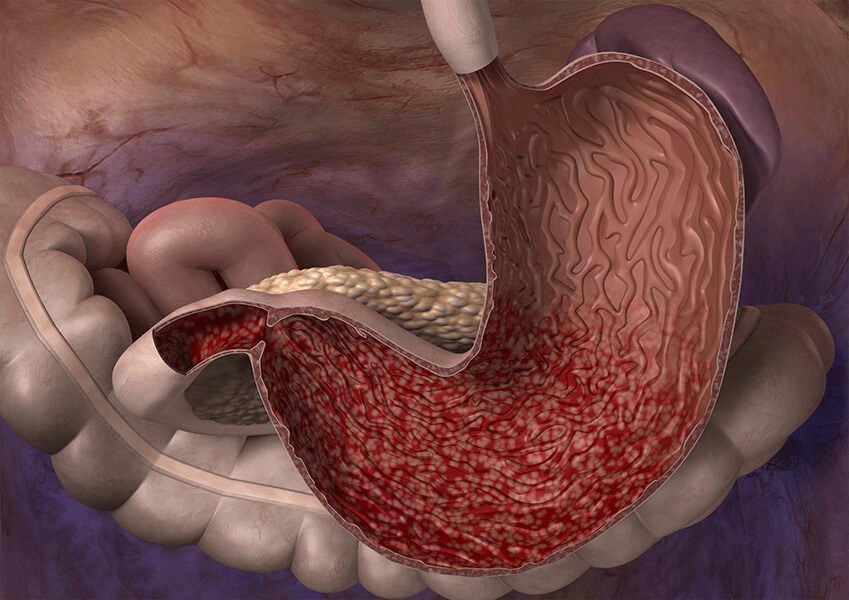What is gastritis?
Gastritis is primarily defined as the inflammation, irritation, or erosion of the covering of the stomach. Gastritis, or stomach inflammation, has been shown to increase the risk of peptic sores, gastrointestinal bleeding, or stomach cancer. The two main types of stomach inflammation include erosive gastritis and nonerosive gastritis. Erosive gastritis damages the stomach lining, and nonerosive gastritis alters the stomach lining.
Gastritis may occur abruptly (acute gastritis) or gradually over time (chronic gastritis). In many situations, the condition will not cause severe complications and settles quickly with treatment. If you want treatment for gastritis in Connecticut, we are here for you. To acquire help for this problem, partner with a GI provider at Connecticut GI requesting a consultation today.
What causes gastritis?
Gastritis typically arises when an injury occurs to the mucosa that lines your stomach, and the stomach acid causes inflammation of the stomach lining. The problem can be more serious for people who suffer from diseases like liver conditions, kidney disease, and respiratory conditions. In general, chronic stomach inflammation or gastritis can be a result of:
- Eating fatty or fried foods
- Cigarette use
- Overuse of aspirin or anti-inflammatory drugs, such as Ibuprofen
- Consuming too many caffeinated beverages
- Consistent stress
- Bile reflux from the liver or gallbladder
- Heavy alcohol use
- Infections – such as H. pylori
- Infections from bacteria or viruses
- Vomiting
- Eating acidic foods like tomatoes and some fruits
- Consuming foods that are spicy
- Eating high amounts of salt
Using specific drugs can also contribute to the progression of gastritis. These medications include:
- Anti-inflammatory pain relievers (NSAIDs) including aspirin, naproxen, and ibuprofen
- Chemotherapy
- Corticosteroids
To receive additional information on how to manage and treat your gastritis, contact your closest Connecticut GI location and request a consultation with a GI provider.
What are some main signs of gastritis?
Several signs are common in patients experiencing gastritis. Some of the main signs and symptoms are:
- Throwing up and nausea
- Vomiting blood
- Sharp pain in the stomach
- Heartburn
- Gas or fullness
- Gnawing sensation in the stomach between meals or at night
- Hiccups
- Tarry or black stools
- Burping
What are the treatments for gastritis?
The treatment for gastritis ranges from person to person, based on the reason. The typical solutions for gastritis include:
- Eliminating certain foods from your diet, like gluten or dairy.
- Staying away from hot or spicy foods
- B12 vitamin injections (for pernicious anemia)
- Antibiotics
- Over-the-counter or prescription-strength heartburn relievers
In the event that you are suffering from one or a combination of the above signs, we invite you to reach out to our skilled Connecticut team. We will deliver the best treatment along with the relief that you deserve.
Find relief from gastritis symptoms
Gastritis can damage your vitality and wellness in a lot of different ways. If you’re experiencing the signs of gastritis and seeking where to turn for treatment, you can depend on our experts at Connecticut GI. Our gastroenterologists are expertly skilled and committed to working with you to get solutions that boost your digestive health. To get assistance for gastritis in Connecticut, connect with us now to request an appointment.
Gastritis FAQs
What foods should I avoid if I have gastritis?
When managing gastritis, it’s essential to steer clear of foods and beverages that might irritate your stomach lining and worsen your symptoms. Generally, you should avoid:
- Spicy foods
- Acidic foods
- Fatty and fried foods
- Alcohol
- Caffeinated beverages
Eating smaller, more frequent meals can also help alleviate symptoms. Additionally, maintaining a food diary can be beneficial to identify specific foods that trigger your gastritis symptoms, allowing you to adjust your diet accordingly.
What complications can gastritis lead to?
If untreated, gastritis can lead to a number of serious complications. Common problems include the development of ulcers in the stomach or small intestine, which can result in severe pain and bleeding. There is also an increased risk of stomach cancer, especially in cases associated with Helicobacter pylori infection. Chronic gastritis can progress to atrophic gastritis, which may cause digestive issues and potentially lead to anemia due to vitamin B12 deficiency.
Is there a way to prevent gastritis?


